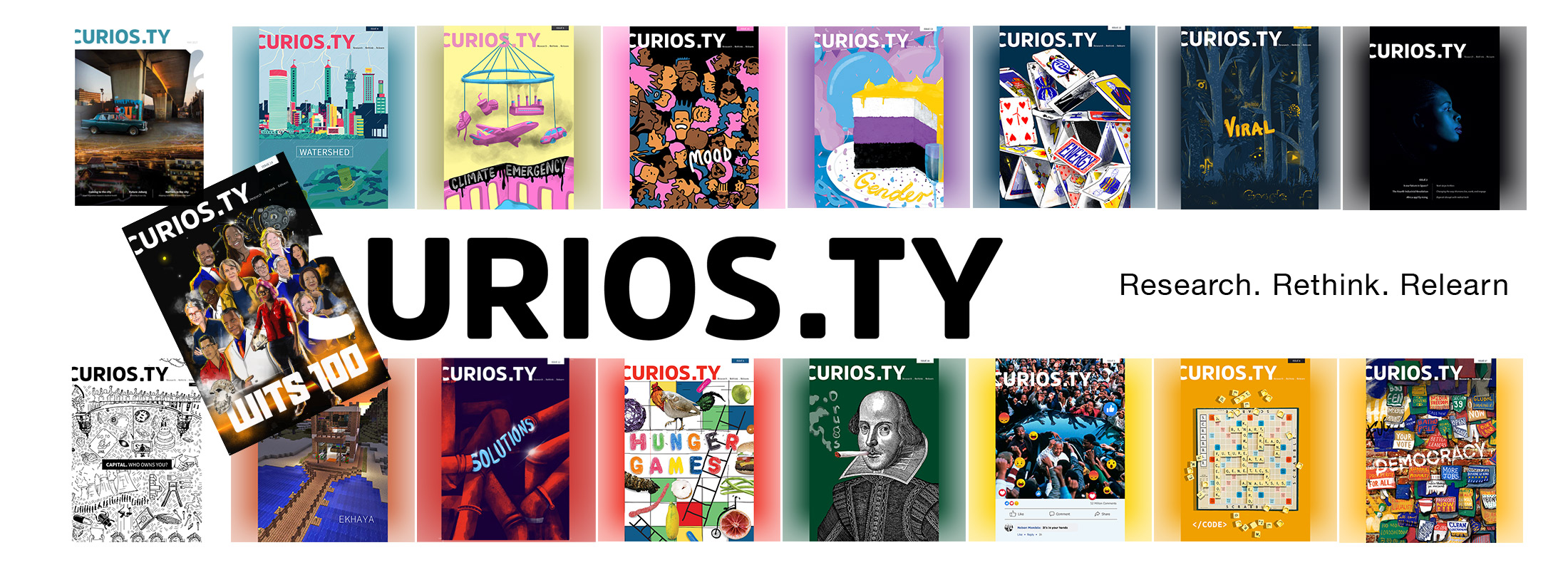
Concentrating on ADHD
- Ufrieda Ho
Attention Deficit Hyperactivity Disorder (ADHD) is a long phrase to describe a short attention span. In students, ADHD can severely impact academic performance.
‘Just focus!’ It’s tougher to do than you think if your brain is wired differently to how the mainstream world is calibrated.
For students with Attention Deficit Hyperactivity Disorder (ADHD), it is a mismatch that means everything they tackle takes that much more effort and time to accomplish. What is more, the double dilemma of being misunderstood, stigmatised and bullied comes with the territory.
Professor Sharon Moonsamy is a speech-language therapist and remedial education consultant and the Acting Head of the School of Human and Community Development at Wits. Moonsamy’s research has looked at the experiences and challenges faced by Wits students diagnosed with ADHD.

Behaviour on the brain
ADHD is a neurological disorder where lower levels of the neurotransmitter dopamine are produced in the prefrontal cortex in the brain, explains Moonsamy. ADHD affects both males and females and, although it is usually diagnosed in children as they start school, it can sometimes go undiagnosed all together or is only picked up later on in life.
Lowered dopamine levels mean that someone with ADHD has compromised impulse control, fewer inhibitions and an impaired ability to concentrate. It comes across as being distracted, seemingly getting bored easily, not being able to sit still, or not being able to complete a task.
“For students, they experience psychosocial difficulties with task perseverance, distractibility, dependency on others in their daily routines, and in their relationships with others. These challenges relate to two of the executive functions: planning and organisation, and attention,” says Moonsamy.
She says ADHD can easily be missed in a university environment because lecturers may associate the condition as something diagnosed in young children, so they are not on the lookout for it in their classes. In addition, students may get lost in the crowd of university life, or those that continue to struggle along are really only just getting by with coping skills that they have relied on for years.
Moonsamy says that what is needed to support and extract the full potential of students with ADHD is the development of better coping skills, improved awareness of ADHD among lecturers and students, and deepening empathy.
“We find often that people with ADHD are highly creative, intelligent and competent, but they often just end up quitting university life because they’re frustrated and they don’t know how to get help,” she says.
Great expectations
Moonsamy points out the weight of expectation on the student with ADHD who arrives at university: “Tagged by parents and lecturers as ‘having potential’, these students are burdened with expectations of success, but they know that focused, sustained and selective attention is a challenge for them. They fail to achieve as expected, which reduces their self-esteem and self-confidence.”
Also, the English words to describe and diagnose the disorder seem alien to some who are not English first-language speakers. As a result, it excludes sufferers who don’t connect with the vocabulary, making it even more difficult for them to express what they are experiencing or to seek help.
Moonsamy thinks sound clinical diagnosis, monitored medication and targeted interventions can benefit many people with ADHD. Coping methods and interventions can include making lists, setting goals, working with smaller chunks of information at a time, verbalising thinking, and using diaries and timers to organise and keep track of tasks.
“Interventions need to include both an understanding of attention skills and how the student can self-regulate thoughts and actions. It is also about breaking down stigmas so that someone can ask for help, even if it’s just extra time to complete an exam or assignment,” she says. “Ultimately there must be safe spaces within the university for students to speak to someone, find support and get the kind of help and understanding that they need.”
Thea’s story
Thea*, a former Wits student with ADHD, could only commit to pursuing a degree in English literature as an older student. She didn’t finish matric and academic under-performance became the label attached to her in her teens.“I left school, started to work and had a CV with a strong skills-set, but I didn’t have the sense of having accomplished anything because I didn’t have the degree. At one point I started studying for a marketing diploma but I couldn’t pass economics, so I just quit,” says Thea.
Eventually, years later, with the right kind of medication, family support and a deeper personal understanding of her disorder, she started tackling a degree through correspondence. “I had to have a work area that’s completely free of clutter. I listened to music and I had to get into a zone so that I could finish what I was doing in one go, even if it meant sitting at my desk for hours, or working through the night,” says Thea of what it took to focus to finish an assignment.
Even today with a job in marketing, she says she has to make lists – with everything colour-coded and ordered. She keeps a diary of tasks and sets a timer and alarms. When she’s in ‘the zone’ she can forget to drink water, to each lunch or just to stop.
“I’m working hard on the balance bit and I literally have to set a reminder to make time for my relationships or to take a break. It’s about planning everything and finding what works for me and getting the right kind of support,” she say.
Her message for students with ADHD is that it can be done. Students with ADHD need to speak up and to ask for help without fear. For lecturers and society in general, Thea says it is about more awareness and education of the disorder and learning to respond with empathy and humility.
“People with ADHD – those who are diagnosed and those who are not – may not be dropping the ball, failing to deliver or underperforming because they’re stupid. They just need the lecturer, the HR person or whoever to ask the right questions in the right way to understand what’s really going on.”
- *Identity withheld.
- *Thea was labelled an academic underperformer before
appropriate interventions enabled her to fulfil her potential despite ADHD. - Ufrieda Ho is a freelance writer.
- This article first appeared in Curiosity, a research magazine produced by Wits Communications and the Research Office.
- Read more in the 10th issue, themed: #Mood how our mental health and wellbeing are impacted by the socio-economic, political, psychological, legal, ethical, cultural and technological interpretations of our world.

